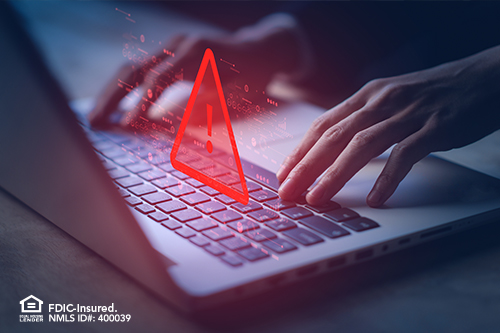Fraudsters devise various schemes to steal your money or personal information. They might impersonate a government representative, claiming you have an outstanding fine. Alternatively, they could masquerade as friends or romantic interests online, claiming to need your information or financial help. A scammer might even present a bogus job opportunity, insisting you pay a fee before securing the position.
The lies differ, but scammers often use the following five tactics:
- Reaching out to you without prior notice. They aim to catch you off guard with the element of surprise. Avoid responding to unsolicited calls, emails, texts, or social media messages asking for money or personal details. If you're unsure whether a call or message is authentic, verify the contact information from a reliable, independent source. Then, reach out to the business, organization, or person. This is important, even if they claim to be friends or family.
- Scammers tell you to hurry. They aim to prevent you from having the opportunity to reflect or verify their narrative. Therefore, take a moment to pause and consider the situation. Consult with someone you trust before handing over money or personal details.
- Instructing you on payment methods. Scammers prefer payment methods that are difficult to trace. Avoid paying anyone who unexpectedly contacts you and insists on payment through cash, gift cards, wire transfers, cryptocurrency, or payment apps. These methods make it challenging, if not impossible, to recover your funds.
- Claiming there’s an issue or a reward. This is a strategy to emotionally engage you. They might claim you’re in trouble with the authorities or owe money. Alternatively, they might say a family member is in an emergency, or your computer has a virus. Sure, scammers claim an issue with one of your accounts, urging you to confirm your details. Others falsely claim you’ve won a lottery or sweepstakes but require a fee to claim it. Please don’t fall for it.
- Impersonating a familiar organization. To gain your trust, scammers often pretend to represent a government agency, such as the FTC, Social Security Administration, IRS, or Medicare (sometimes inventing official-sounding names). They might also pose as representatives from businesses you recognize, like a utility company, tech firm, charity, or even NASB. They frequently use technology to alter the phone number on your caller ID, making the name and number appear legitimate, even though they are not. Verify the source independently before making any payments. Many organizations, like the IRS, do not call individuals to request payment.
Recognizing scam indicators enables you to see through the narratives scammers present. Meanwhile, protect yourself from fraud with these defenses:
- Prevent unwanted calls and text messages. The most effective method to safeguard yourself from scam calls and texts is to avoid receiving them altogether. The simplest method to prevent unwanted calls and screen unsolicited text messages is to block them.
- Avoid sharing your personal or financial details with anyone you didn't expect to ask for them. Reputable organizations concerned with your security will not ask you to disclose your Social Security, bank account, or credit card numbers in insecure ways, such as over the phone or through text messages. Even if an email or text appears from a legitimate source, it's safer not to click on links. Instead, contact the organization through a website you trust or find their phone number independently. Avoid calling the number they provided or the one displayed on your caller ID.
- Resist the urge to act immediately. Most companies will allow you time to make a payment. Individuals who pressure you for money or personal information are likely not acting in your best interests.
- Be aware of how scammers prefer you to pay. Avoid paying anyone who insists on receiving payment solely via cryptocurrency, wire transfer services such as Western Union or MoneyGram, payment apps, or gift cards. Do not deposit a stranger's check and forward the money to someone else—if the check bounces, you will be responsible for the loss.
- Pause and consult someone you trust. Before taking action, discuss the situation with someone you trust, such as a friend, family member, or neighbor. Talking it over can help you process the problem more clearly.
If you've fallen victim to a scam and lost money, contact the company that facilitated the transfer to explore options for recovering your funds. Afterward, report the scammer at ReportFraud.ftc.gov.




